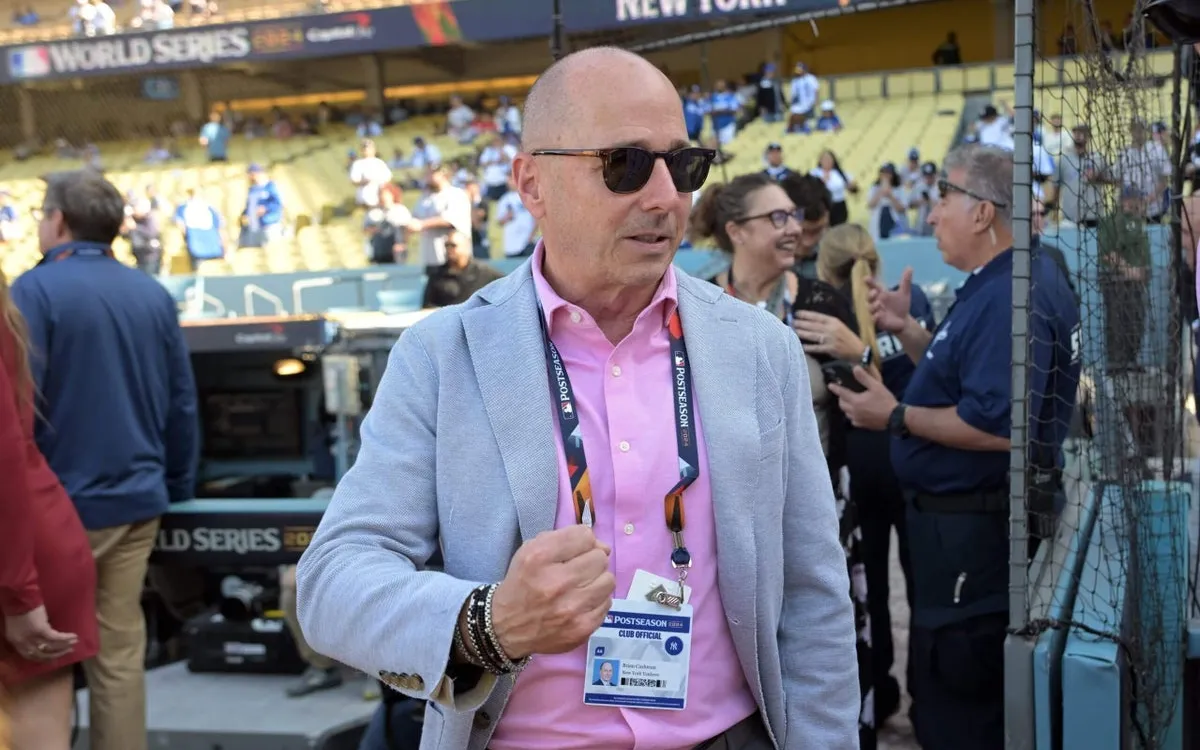
The New York Yankees have entered the offseason earlier than many anticipated, as their playoff dreams were extinguished just a week into October. The Toronto Blue Jays eliminated the Yankees from the postseason by clinching Game 4 of the American League Division Series with a 5-2 victory, resulting in a raucous celebration at Yankee Stadium. The early exit has left many Yankees fans feeling a mix of anger and disappointment, particularly as it followed a promising run towards the 2024 World Series. General manager Brian Cashman faces a series of pressing questions this offseason that could shape the future of the franchise.
The debate surrounding Aaron Boone and his future as manager has intensified, especially in light of the Yankees' playoff performance. Had the Yankees been ousted earlier in the postseason, particularly by the Boston Red Sox, the calls for Boone's dismissal would likely have grown louder. However, with the Yankees finishing the season with a respectable record of 94-68, the public outcry has diminished. Boone’s tenure has been marked by a lack of postseason success—0-for-8 in playoff series—but Cashman has shown no inclination to make a change. In a statement from August, Cashman praised Boone for his ability to manage a large roster in a high-pressure environment.
Boone retains the support of influential figures within the organization, including owner Hal Steinbrenner and star player Aaron Judge. Despite the team’s struggles, Boone boasts the second-best winning percentage among active managers. With two years remaining on his contract, it seems likely that Cashman will continue with Boone, especially given the historical tenure of previous managers like Joe Torre and Joe Girardi.
The Yankees face decisions regarding several unrestricted free agents this offseason, including Paul Blackburn, Paul Goldschmidt, Trent Grisham, Amed Rosario, Austin Slater, Luke Weaver, Devin Williams, and Ryan Yarbrough. Additionally, they have two players with club options: Tim Hill and Jonathan Loáisiga. It is anticipated that Goldschmidt will not be re-signed as the team looks to the future, and Slater’s injury has made his return unlikely. Re-signing both Weaver and Williams appears improbable, given the Yankees' recent reluctance to invest heavily in relief pitchers.
Among the unrestricted free agents, Rosario, Blackburn, and Grisham present the most potential for a return. Rosario has been a target for the Yankees in previous offseasons, while Blackburn demonstrated promise with a strong September performance. Grisham, coming off a career year, poses both opportunity and risk as the Yankees evaluate their long-term strategy. Should the Yankees extend a qualifying offer to Grisham, it could lead to a one-year contract that provides them with flexibility as they develop younger talent.
The most pressing question for the Yankees this offseason revolves around how aggressively they will seek to upgrade their roster. Cody Bellinger has emerged as a key player after a standout season, and his versatility in the outfield makes him an attractive option. His performance metrics have shown significant improvement, but his agent, Scott Boras, is known for negotiating lucrative contracts, making Bellinger a potentially expensive acquisition.
In contrast, Kyle Tucker is considered the top free agent on the market. Despite a down year, his impressive production still positions him as a coveted player. The Yankees could benefit from his powerful bat in the hitter-friendly confines of Yankee Stadium. However, the financial implications of signing Tucker could reach upwards of $200 million more than what Bellinger might command, complicating the Yankees' decision-making process.
As the Yankees navigate these offseason challenges, the future of the franchise depends on strategic choices regarding management, player retention, and potential acquisitions. With a mix of established talent and emerging prospects, the Yankees must balance the desire for immediate success with the long-term vision for the team.